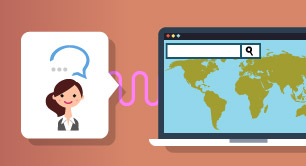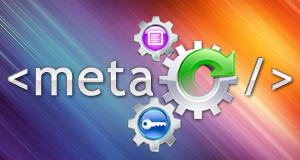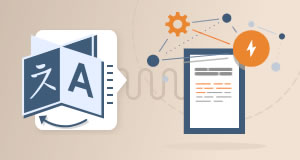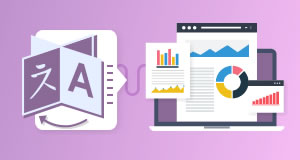
Glossaries are an integral part of terminology management. Glossaries are compiled for companies to ensure the unity of style and terminology of translated documentation, as well as to aid in the translation of highly-specialised scientific, medical, technical and other specialised texts. A carefully crafted glossary helps to avoid discrepancies and improve the overall quality of all translated documentation. A glossary should include all key terms, along with an interpretation of their meaning. Glossaries can contain individual words, phrases, abbreviations, slogans and even whole sentences.
Generally speaking, a glossary is a detailed transcript of specific terms. It can be industry-specific (i.e. the terminology is based on a particular subject, e.g. medical, legal, science, etc.), brand-specific (i.e. it can include specific vocabulary to the company, e.g. product names, abbreviations, etc.), or project-specific (which would allow translators to maintain uniform terminology throughout the translation project). Project-related terminology can incorporate the industry and brand-related glossaries.
Glossaries are useful not only for translators but also for the brands themselves as they help to unify the terms in all subsequent translations that will be performed for a particular company, regardless of whether the same or a different translator will work on translations in the future.
Generally, the following benefits of using glossaries can be defined across all translation projects:
- Glossaries improve the quality of translations by ensuring the uniformity of the terminology used. Glossaries are especially useful when working on a large project when several translators are translating simultaneously.
- Glossaries reduce the risk of human error.
- Glossaries save you time and money as the translator can use the glossary to make automatic replacements in the text.

Glossaries are especially important when working on large projects or with a team of translators
A glossary is essential to compile when working with large texts for translation or when a whole team of translators is working on a translation project at the same time. In such cases, the glossary helps to ensure the use of the same terms throughout the text, regardless of how many people work on the translation.
Glossaries should be integrated into translation memory tools
Glossaries are also convenient when working with translation memory systems. By storing pairs of terms in these programs, the translator can at any time use the identical terms found in another part of the translated document. The glossaries integrated into the translation memory system help the translator to always stay consistent and use the same equivalent for all the same terms encountered, which ultimately results in a higher quality.
Glossaries should include not-to-be-translated (NTBT) terms
By marking these terms in a glossary or as a separate list of NTBT terms, translators can identify NTBT terms and keep them in the original language. However, as the need for translation may still be present, context and definitions are essential elements to have in the glossary so that the translator can make an informed decision.
I hope this blog post has given you a useful introduction to glossary and terminology management. For more in-depth information, read my free, full-length guide here. The guide covers:
- why you need to manage your terminology and how a glossary can help you to achieve that
- tips on how to use your glossary as effectively as possible
- what you need to think about when you are coming up with your terminology management processes and workflows
Anna Milburn
Latest posts by Anna Milburn (see all)
- 3 tips for social listening for international marketers - June 23, 2022
- Watch the recording: How to successfully set up social listening and use the insights in your marketing - January 11, 2022
- Why glossaries should be part of any translation project - April 27, 2020





